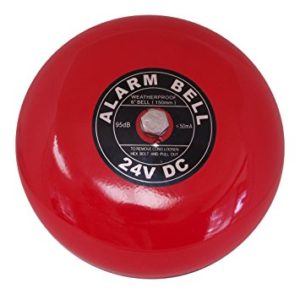Two things happen in the run-up to Spring Break. Generally, we don’t speak of the two things, and we give people that “I’m in the dark” look when people do speak of the two things. But I’m going to break with centuries of Spring Break tradition and bring the two things out into the open.
First Thing: Mentally and emotionally, for professors and students, Spring Break starts the morning of Monday before Spring Break. Look around. Listen to that long breath you take before announcing homework or handing out an exam. Look at students’ body language as they turn in assignments on Monday or Tuesday. We all exchange knowing looks when we say things like, “I’m going to grade these essays over the break,” or “I’ll have this research paper done the first weekend of spring break.” Right.
 Second Thing: For administrators, Spring Break does not signal the approach of a week of rest or the consummation of half a term of learning and growth. Rather, it’s the Spring Alarm Bell. It stands for all the work they should have gotten people to do earlier in the semester, stacked up into a single pre-Spring Break frenzy of relentless meetings and memos that start, “Before you leave for Spring Break. . . .”
Second Thing: For administrators, Spring Break does not signal the approach of a week of rest or the consummation of half a term of learning and growth. Rather, it’s the Spring Alarm Bell. It stands for all the work they should have gotten people to do earlier in the semester, stacked up into a single pre-Spring Break frenzy of relentless meetings and memos that start, “Before you leave for Spring Break. . . .”
To take your mind of this year’s Two Things, we’re opening a campus, closing a campus, opening a building, and opening another building.
Here’s my prescription for Spring Break:
- Try a new sport or activity.
- Read a book you had not planned to read.
- Have at least half an hour of genuine conversation with someone who disagrees with you.
- Learn a new strategy game. (If you haven’t played go, that’s my top recommendation.)
- Have coffee with the people you usually complain with, and tell them what you love about your job.
- Go someplace and listen. To anything. Bach, birds, traffic, Tchaikovsky — just listen. Brahms. People in the produce section. Brahms is good.
- Read a poem out loud to yourself. If you don’t have a poet in mind, try Ezra Pound. (I’m into Pound at the moment, and I like to share my odd obsessions.)
- Share one of your odd obsession with someone.
When you come back after the break, try this: Do 15% less, but do it 15% better.
Have a great spring break!
Matthew
